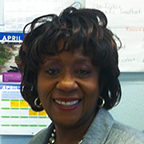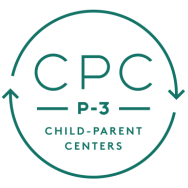Mentor Responsibilities
The CPC P-3 Mentor provides advice and assistance to Collaborative Leadership Team members and teachers for implementing the CPC P-3 program with high fidelity across the preschool–3rd grade continuum.
Typical tasks for the Mentor may include:
- Hold monthly site visits to ensure all CPC P-3 requirements are being met.
- Hold monthly site visits to ensure all CPC P-3 requirements are being met.
- Check in monthly with the principal to discuss promoting parent involvement and to receive staffing updates.
- Check in monthly with the HT to assess professional development implementation and the use of teaching assistants in classrooms.
- Check attendance and develop a plan to maintain/increase student attendance.
- Convene the HT, PRT, and Liaisons in a joint meeting to receive updates on collaboration, alignment of curriculum, and parent program across grades.
- Communicate weekly with PRTs to receive updates on the progress of the parent program and to check on how the SCR’s time is being used.
Requirements
- Knowledge of the CPC P-3 program
- Prior leadership experience in a CPC P-3 site or similar school reform model
- Bachelor’s degree in Early Childhood Education, Elementary Education, or related field; Master’s degree preferred
- Prior teaching experience in an early childhood or elementary setting
- Familiarity with educational trends, specifically in parent involvement and engagement strategies
- Ability to lead others in change of practices
- Ability to establish and maintain effective working relationships with staff
We Can Do This Role?
Various school districts have different titles for similar roles. Below are examples of staff titles and personnel that may fulfill the requirements of the CPC P-3 Mentor role.
- Former CPC PRT
- Former CPC HT
- Former District Early Childhood Manager

Interview with Anita President
Mentor, Chicago Public Schools
Q: The needs of each school are unique. How do you tailor your support to each school?
A: In order to tailor support for each school it is critical to understand its culture. One way this can be achieved is by having participants complete a Needs Assessment checklist prioritizing which areas of interest they consider most important. After thoroughly reviewing the area of interest expressed on the checklist, this can be used as a tool to help guide support of the school.
Q: What suggestions do you have for helping the SCR, PRT, and HT collaborate on increasing student attendance?
A: It is important for the team (HT, PRT, SCR) to meet daily – some days this will be an informal meeting. Each team member will share areas of concern and identify families needing support. Then phone calls and home visits can be made. The team should always document what has been discussed and the steps that have been taken. Additionally, it is important that families are acknowledged whenever there is an improvement in attendance, no matter how slight. It is important to remember that if you want to build rapport with families, don’t just call when there is a problem. People need to hear cheerful and encouraging messages as well, and they will be less defensive and more cooperative if your calls are not always disheartening.
Q: Can you share some of your methods for guiding PRTs and SCRs in their work together?
A: One method is to make sure the lines of communication are open. It is important to share information and keep documentation current, in order to find out how to deal with individual parents. The PRT can provide workshops to address issues and concerns of parents. The SCR and PRT can come up with a list of agencies that can be shared with the parents or compiled in a handbook to be kept in the Parent Resource Room.
